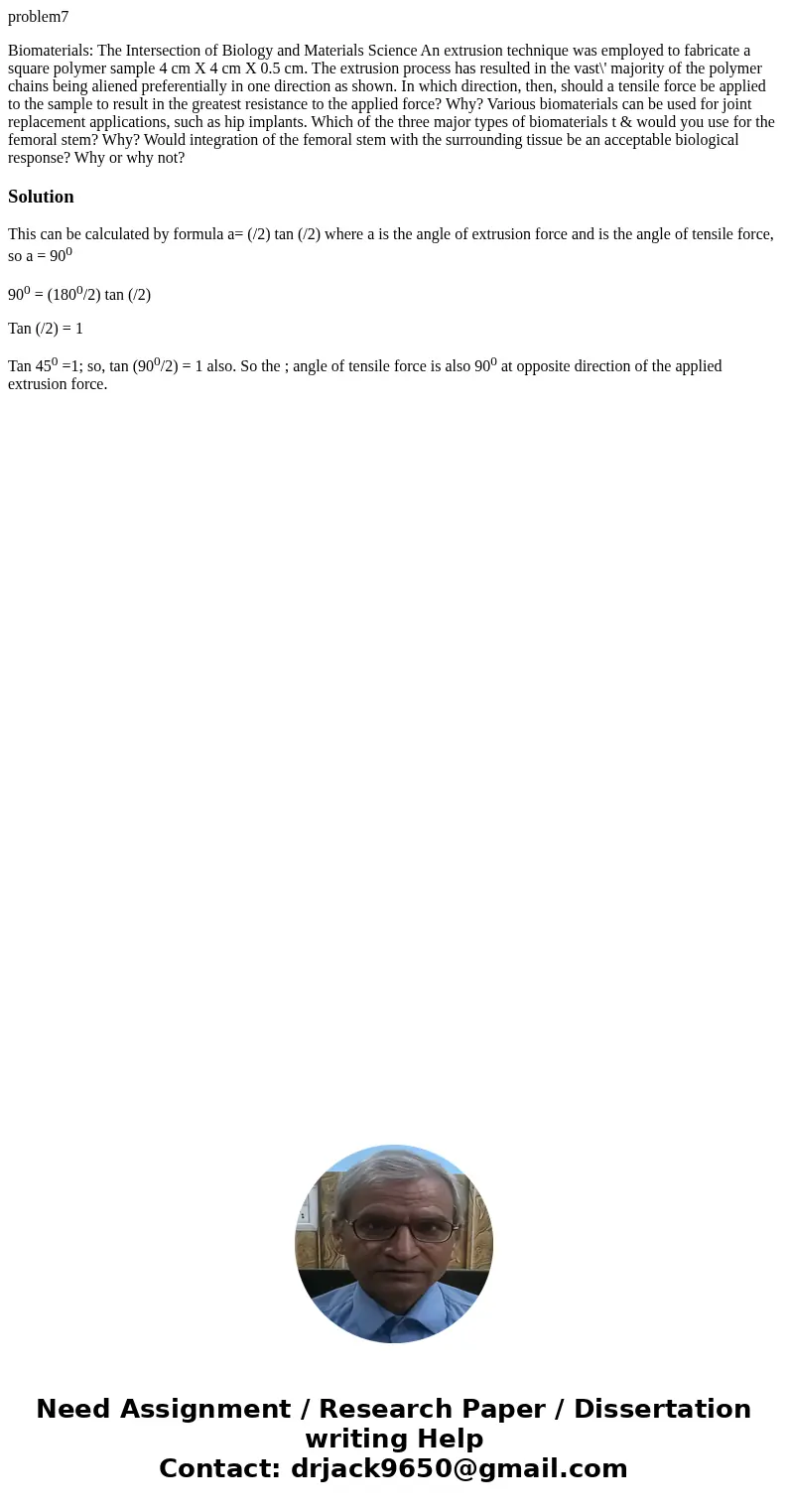problem7 Biomaterials The Intersection of Biology and Materi
problem7
Biomaterials: The Intersection of Biology and Materials Science An extrusion technique was employed to fabricate a square polymer sample 4 cm X 4 cm X 0.5 cm. The extrusion process has resulted in the vast\' majority of the polymer chains being aliened preferentially in one direction as shown. In which direction, then, should a tensile force be applied to the sample to result in the greatest resistance to the applied force? Why? Various biomaterials can be used for joint replacement applications, such as hip implants. Which of the three major types of biomaterials t & would you use for the femoral stem? Why? Would integration of the femoral stem with the surrounding tissue be an acceptable biological response? Why or why not?Solution
This can be calculated by formula a= (/2) tan (/2) where a is the angle of extrusion force and is the angle of tensile force, so a = 900
900 = (1800/2) tan (/2)
Tan (/2) = 1
Tan 450 =1; so, tan (900/2) = 1 also. So the ; angle of tensile force is also 900 at opposite direction of the applied extrusion force.

 Homework Sourse
Homework Sourse